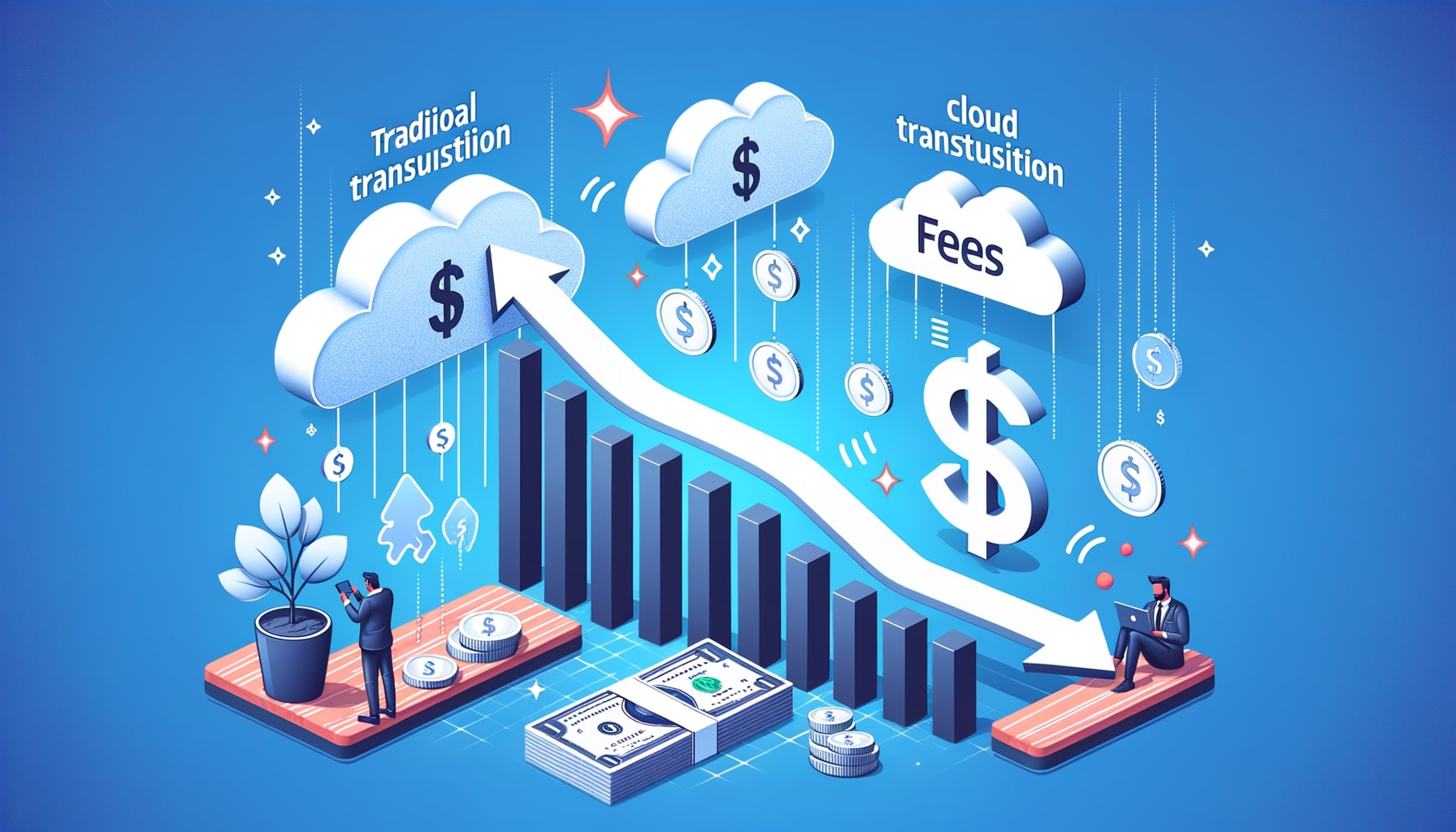Understanding the Role of AI in Cloud Payments
Artificial Intelligence (AI) has revolutionized various industries, and the world of payments is no exception. With the advent of cloud computing, AI has found its way into the payment ecosystem, transforming the way transactions are processed, secured, and personalized. This article aims to provide a comprehensive understanding of the role of AI in cloud payments, exploring its evolution, security enhancements, fraud detection and prevention capabilities, customer experience improvements, streamlining of payment processes, risk management applications, and addressing challenges and concerns.
The Evolution of AI in Cloud Payments
The integration of AI in cloud payments has been a gradual process, driven by advancements in technology and the need for more efficient and secure payment solutions. Initially, AI was used for basic tasks such as data analysis and fraud detection. However, with the rise of cloud computing, AI has gained access to vast amounts of data and computing power, enabling more sophisticated applications in the payment industry.
One of the key milestones in the evolution of AI in cloud payments was the development of machine learning algorithms. These algorithms enable AI systems to learn from data and make predictions or decisions without being explicitly programmed. This capability has opened up new possibilities for fraud detection, risk management, and personalized customer experiences in the payment ecosystem.
How AI Enhances Security in Cloud Payments
Security is a paramount concern in the world of payments, and AI has emerged as a powerful tool to enhance security measures. AI-powered systems can analyze vast amounts of data in real-time, detecting patterns and anomalies that may indicate fraudulent activities. By continuously learning from new data, AI systems can adapt and improve their fraud detection capabilities, staying one step ahead of cybercriminals.
Moreover, AI can also strengthen security in cloud payments through biometric authentication. Facial recognition, fingerprint scanning, and voice recognition technologies powered by AI can provide a more secure and convenient way for users to authenticate their transactions, reducing the risk of identity theft and unauthorized access.
AI-powered Fraud Detection and Prevention in Cloud Payments
Fraud detection and prevention are critical aspects of payment processing, and AI has revolutionized these areas. Traditional rule-based systems often struggle to keep up with the ever-evolving tactics of fraudsters. AI, on the other hand, can analyze vast amounts of data, identify patterns, and detect anomalies that may indicate fraudulent activities.
Machine learning algorithms enable AI systems to learn from historical data, continuously improving their fraud detection capabilities. These algorithms can detect subtle patterns and correlations that may not be apparent to human analysts, enabling faster and more accurate fraud detection.
Furthermore, AI can also help prevent fraud by implementing real-time monitoring and transaction analysis. By analyzing various parameters such as transaction amount, location, and user behavior, AI systems can identify suspicious activities and trigger alerts or block transactions in real-time, preventing potential losses.
Improving Customer Experience with AI in Cloud Payments
Customer experience is a crucial factor in the success of any payment solution, and AI has the potential to significantly enhance it. AI-powered chatbots and virtual assistants can provide personalized and real-time support to customers, answering their queries, resolving issues, and guiding them through the payment process.
Moreover, AI can also enable personalized recommendations and offers based on customer preferences and behavior. By analyzing transaction history, browsing patterns, and demographic data, AI systems can suggest relevant products or services, enhancing the overall customer experience and increasing customer satisfaction.
AI-driven Personalization in Cloud Payments
Personalization is a key trend in the payment industry, and AI plays a vital role in enabling personalized experiences for users. By analyzing vast amounts of data, including transaction history, browsing behavior, and demographic information, AI systems can create detailed user profiles and understand individual preferences.
This understanding allows AI systems to offer personalized recommendations, discounts, and rewards tailored to each user’s needs and preferences. Personalization not only enhances the customer experience but also increases customer loyalty and engagement, leading to higher conversion rates and revenue for businesses.
The Role of AI in Streamlining Payment Processes
Payment processes can often be complex and time-consuming, involving multiple parties and systems. AI can streamline these processes by automating various tasks and reducing manual intervention. For example, AI-powered systems can automatically reconcile payments, match invoices with transactions, and generate reports, saving time and reducing errors.
Furthermore, AI can also enable faster and more efficient payment processing through real-time transaction monitoring and analysis. By analyzing various parameters such as transaction amount, location, and user behavior, AI systems can identify potential issues or anomalies and take appropriate actions, ensuring smooth and secure payment processing.
AI and Machine Learning in Risk Management for Cloud Payments
Risk management is a critical aspect of cloud payments, and AI and machine learning have revolutionized this field. AI-powered risk management systems can analyze vast amounts of data, including transaction history, user behavior, and external factors, to identify potential risks and take proactive measures to mitigate them.
Machine learning algorithms enable AI systems to learn from historical data and identify patterns or correlations that may indicate potential risks. By continuously analyzing new data, AI systems can adapt and improve their risk management capabilities, enabling more accurate risk assessment and mitigation.
Addressing Challenges and Concerns with AI in Cloud Payments
While AI offers numerous benefits in cloud payments, there are also challenges and concerns that need to be addressed. One of the main challenges is the ethical use of AI in decision-making processes. AI systems should be transparent, explainable, and accountable, ensuring that decisions are fair and unbiased.
Another concern is the security and privacy of user data. AI systems rely on vast amounts of data to learn and make predictions, raising concerns about data breaches and unauthorized access. Robust security measures, including encryption and access controls, should be implemented to protect user data and ensure compliance with data protection regulations.
Furthermore, there is a need for collaboration and standardization in the adoption of AI in cloud payments. Industry-wide standards and best practices can help ensure interoperability, data sharing, and the ethical use of AI, fostering innovation and trust in the payment ecosystem.
FAQ’s
Q.1: What is AI in cloud payments?
AI in cloud payments refers to the integration of artificial intelligence technologies in the payment ecosystem, leveraging cloud computing capabilities to enhance security, streamline processes, improve customer experience, and enable personalized services.
Q.2: How does AI enhance security in cloud payments?
AI enhances security in cloud payments by analyzing vast amounts of data in real-time, detecting patterns and anomalies that may indicate fraudulent activities. AI-powered systems can also implement biometric authentication, reducing the risk of identity theft and unauthorized access.
Q.3: How does AI improve customer experience in cloud payments?
AI improves customer experience in cloud payments by providing personalized and real-time support through chatbots and virtual assistants. AI systems can also offer personalized recommendations and offers based on user preferences, enhancing customer satisfaction and engagement.
Q.4: What is the role of AI in streamlining payment processes?
AI streamlines payment processes by automating tasks such as payment reconciliation, invoice matching, and report generation. AI systems can also enable real-time transaction monitoring and analysis, ensuring faster and more efficient payment processing.
Q.5: How does AI contribute to risk management in cloud payments?
AI contributes to risk management in cloud payments by analyzing vast amounts of data to identify potential risks and take proactive measures to mitigate them. Machine learning algorithms enable AI systems to continuously learn and improve their risk management capabilities.
Conclusion
AI has emerged as a game-changer in the world of cloud payments, revolutionizing security, fraud detection, customer experience, payment processes, and risk management. By leveraging the power of cloud computing and machine learning algorithms, AI systems can analyze vast amounts of data, detect patterns, and make predictions or decisions in real-time. However, the adoption of AI in cloud payments also comes with challenges and concerns that need to be addressed, including ethical use, security, privacy, and standardization. With proper measures in place, AI has the potential to transform the payment industry, providing secure, efficient, and personalized payment solutions for businesses and consumers alike.










